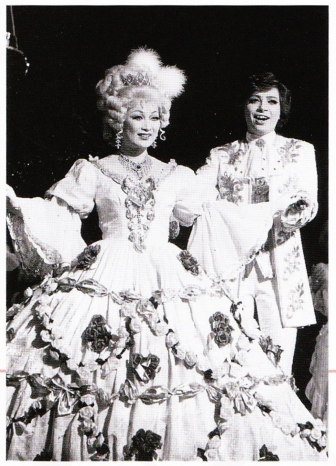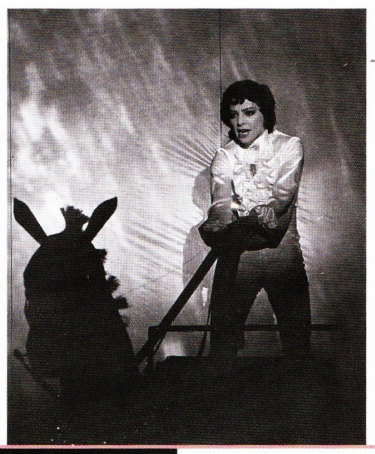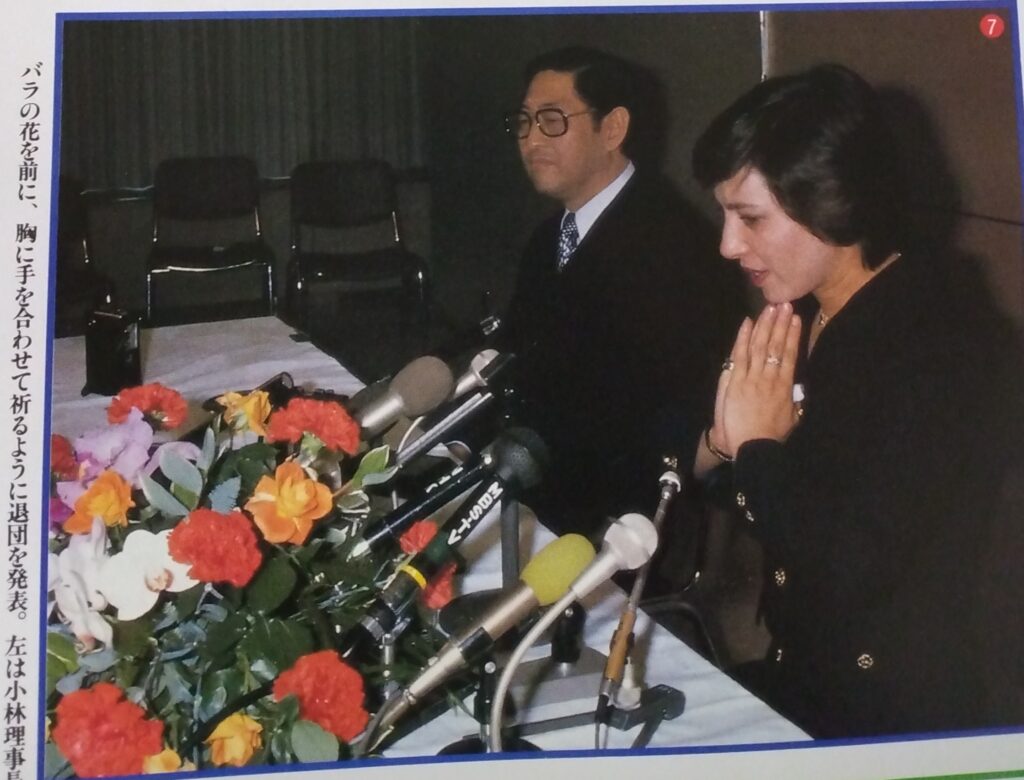This book, which is something of an ‘oral history’ of Takarazuka’s Rose of Versailles adaptations, was published by Ascom in late 2005, and features chronological accounts from otokoyaku who had performed in the franchise from its first origins through the 2001 productions. Since the book is derived from transcriptions of interviews taking place often many decades after the fact, there may be discrepancies between accounts.
Please note that the term appearing through the text as ‘theatre-comic’ is translated from the Japanese term gekiga [劇画]. Although this term is described as applying to mainly male-oriented comics in most English-language sources, this not accurate. The definition of this word changed to also include sweeping, romantic female-oriented works with Rose of Versailles being arguably the most famous of theatre-comics. Takarazuka even published its own magazine of theatre-comics in the 1970s.
Chapters have been split in two to make them more readable without too much scrolling to reach the explanatory footnotes. Some paragraph breaks have also been added for ease of reading in English. I have also included some images printed in the book as well as sourcing many other archival images to illustrate the text.
Installments will be posted every two weeks, with some breaks if the next chapter is not complete.
(Please note some images used in this chapter are from photographs rather than scans; I hope to replace these with better quality scanned versions later.)
Fersen’s boots
So many things changed because of Berubara. And a lot of things that developed as part of Berubara’s kata ended up being passed down as Takarazuka’s ‘patterns’. Especially Director Hasegawa Kazuo’s guidance on ‘how to present yourself beautifully’. From stars’ sidelong glances to how they enter a scene, he taught us everything.
For example, just before the star enters, someone will call their name: “Sir _____, Sir _____!” and then the orchestra will play a fanfare: “Tantara~”, and then as the whole audience’s awareness and sightline has been concentrated in one spot, the star enters! That sort of thing started with Berubara.
You’ll see it in all kinds of shows now, though. “Mademoiselle Oscar, Mademoiselle Oscar, Mademoiselle Oscar, tantara~’ and Oscar enters! That direction hadn’t been used in Takarazuka before then.

And that sort of thing feels wonderful for the person making the entrance, too! I think that since Director Hasegawa was also a star, after all, he really understood how us performers felt from his own experiences. This staging heightened emotions for both the audience and the performers. I think that just as Director Hasegawa left this behind for Takarazuka, Takarazuka must continue to treasure it and pass it down.
In that way, Berubara is a symbolic work for Takarazuka. As someone in the ‘first generation’ I think it’s a wonderful thing that the same show we performed in continues to be passed down. However, to tell the truth, we were really worried about the first revival productions1. So much time had passed, so what kind of people would turn up to watch?
But it turned out there was no reason to fear! The people who went mad over the first production came and brought their children with them. And then we worried again about the re-revival productions2. And this time, they brought their children and their grandchildren (laughs). What was one person in the original audience turned into two people (parent and child) for the revival, and three people (parent, child, grandchild) for the next revival. So now for the fourth time around3 maybe they’ll have great-grandchildren (laughs). In this way, it’s even being passed down to the second and third generation in the audience.
By the way, I, the first Fersen4, don’t really watch Takarazuka much these days… First off, I can’t score any tickets (laughs). But that’s just an excuse, really, to be honest, something inside me doesn’t really want to.
I’ve got to explain this so nobody misunderstands it. My feeling of personal relationship is too strong, so I can’t watch as just part of the audience. It’s like I’m watching my younger sisters or my children, so something like parental feelings—that concern—wells up first and I can’t feel the excitement of it. Even though I really want to be excited to watch Takarazuka… Maybe I’m too old for this (laughs).
And besides that, a while back when I went to see a Berubara revival for the first time in a while, I had a huge shock…

Since Oscar wears the uniform of the Royal Guard, her costume has long riding boots that go up to her knees, right. But I (Fersen) am a Swedish noble youth, so naturally I have a long velvet coat and tights. Despite that, in the performance I saw after so long, Fersen was wearing long boots, and I was so disappointed…
I can’t believe Fersen would wear boots!
Each role is different, and the costumes each have their different meanings and allotments. The Swedish noble youth Fersen, “because it’s the costume of a Swedish noble youth”, has the tights and velvet. And in the reverse, since Oscar is the captain of the Royal Guard, she has to wear a uniform. Though uniforms look very cool, it’s not like he is “Fersen the soldier”, after all… The costumes express the character, so I feel that a Fersen wearing boots isn’t the Fersen that I played at all.
Naturally things do change a bit with the times, but Fersen being a role I loved so much made the shock of it all even bigger. If the actor was considering how good or bad she looked on the outside, rather than the character of her role, that would be so unfortunate. I think that perhaps being unable to go along with this transformation is one of the reasons I’ve distanced myself from Takarazuka.
As an actor, in the end, the question is how much you can bring out the internal atmosphere of the character. I think it’s important to sincerely confront the character you are playing within your heart.
Meeting “mature men”
It might be strange for me to say this myself, but I’ve always thought of myself as a mature, expansive type of otokoyaku, rather than a sweet ingenue type. I think that because I played Fersen, that style became more and more intense within me.
Gone With the Wind’s Rhett Butler and For Whom the Bell Tolls’ Robert Jordan and all the rest are all related to Fersen in that they are bold, broadminded men. So in a way, just like pale blue gradually darkens into navy blue, I feel like the expression of broadmindedness within me also increased.
But at the time I sure did long for those ‘sweet ingenue’ roles (laughs). I’d think “Ah, I wish I could have played Oscar…” (laughs). But now that I’ve been an actress, I think that having played these ‘mature men’ is my greatest asset, so I’m happy with it ending up like this. Either way, I don’t fit those ‘sweet ingenue’ roles, so I think I would have reached my limit eventually anyway (laughs).

At the time, when I played Fersen, I just felt innocently that “this feels really nice” to experience his love story. But after arriving in the real world from the Dragon Palace5 and going out into society, I realized for the first time that such wonderful men as Fersen don’t exist at all.
Especially in this era, I don’t think any men exist who would throw away everything and put their lives on the line just to go to a woman. Broadminded men like Fersen, or Butler, or Robert, in our current reality, maybe unfortunately, they just don’t exist (laughs).
I was happy to play only idealized men, but due to that, real men just don’t measure up… (laughs). I think in a way becoming so discerning about men might have made me a bit lonely, for better or worse.
Also, when I was performing as an otokoyaku I’d say “I love you,” over and over, so I thought when I entered normal society that I’d still hear that regularly. But in reality, I’ve never once had a man say it to me! Japanese men, especially, don’t say “I need you,” “I love you,” “I want you,” anywhere near enough! They might think we’ll understand this without their having to say it, but if you won’t say it we won’t know!”
Therefore, though in the real world men are avoiding me (laughs), I feel deeply that it was a great thing for me to be able to encounter ‘wonderful mature men’ in Takarazuka.
If I hadn’t entered Takarazuka, at this time I might very well be a totally normal middle-aged lady in Kobe. Even after entering Takarazuka, I never dreamed of becoming Top Star.
Besides that, because I was born in Japan with these looks, at times I faced pain and sadness. However, you could say that it’s thanks to these looks that I was able to become Top Star. So now I’ve come to think it’s a good thing that I’m different from other people and that I was born here in Japan.
Also, my good fortune in encountering Takarazuka and encountering Fersen changed my life hugely. For actors, the idea that ‘luck is part of ability’ isn’t true, but whether you run into good shows or good roles will change your future.
I feel even more strongly now how lucky I was to be given such a huge opportunity. Thanks to all of those ‘good men’ I encountered, Ootori Ran is who she is now, so I’m truly grateful for my good luck.
Berubara Q&A – Ootori Ran
Q – If I say ‘Takarazuka’, what do you think of?
A – Fairies.
Q – If I say ‘Berubara’?
A – France.
Q – What message would you currently want to give Oscar?
A – Even though you were raised as a boy you loved Fersen, and were loved by Andre, so I’m jealous of you for experiencing so much happiness as a woman.
Q – What message would you currently want to give Andre?
A – Your pure heart’s steadfast love for Oscar is so beautiful.
Q – What message would you currently want to give Fersen?
A – You were willing to risk everything for the woman you loved; I’m so moved by your big heart and your courage. You really are the ideal man!
Q – If you could request one thing from Takarazuka, what would it be?
A – Please let me be a Takarazuka member my whole life~!! (laughs)
Q – If you were reborn, would you join Takarazuka again?
A – Of course I’d join, of course. As an otokoyaku, naturally.
Extra questions
Q – What are your memories of the Grand Stairs?
A – They were seriously scary. Since I’m so tall and further off the ground (laughs). When I had to descend the stairs I’d always become really timid all of a sudden. But I never actually fell. Since I was so, so careful, and didn’t care if I got down the stairs after everyone else as long as I didn’t fall (laughs).
Q – What are your favorite Takarazuka lines?
A – “I’ve pursued you more intently than I’ve ever pursued a woman, I’ve waited for you more patiently than I’ve ever waited for a woman. Scarlett, I love you!” (Rhett Butler)
Q – What otokoyaku characters have you fallen for as a woman?
A – Rhett Butler..
Q – What did you struggle with in Takarazuka?
A – Japanese dance. Traditional Japanese-style productions. No matter what my gestures would always end up looking foreign (laughs)5. People would always burst out laughing and tell me “Please try to do it in a bit more Japanese way!”
1 – Probably the earliest Heisei era productions, from 1989-1991.
2 – Probably the later Heisei productions, from 2001.
3 – The then-upcoming 2005-6 productions.
4 – As in, the first Fersen in a show fully starring the character.
5 – Ootori Ran is of Chinese ancestry, the first Top Star of non-Japanese descent.
